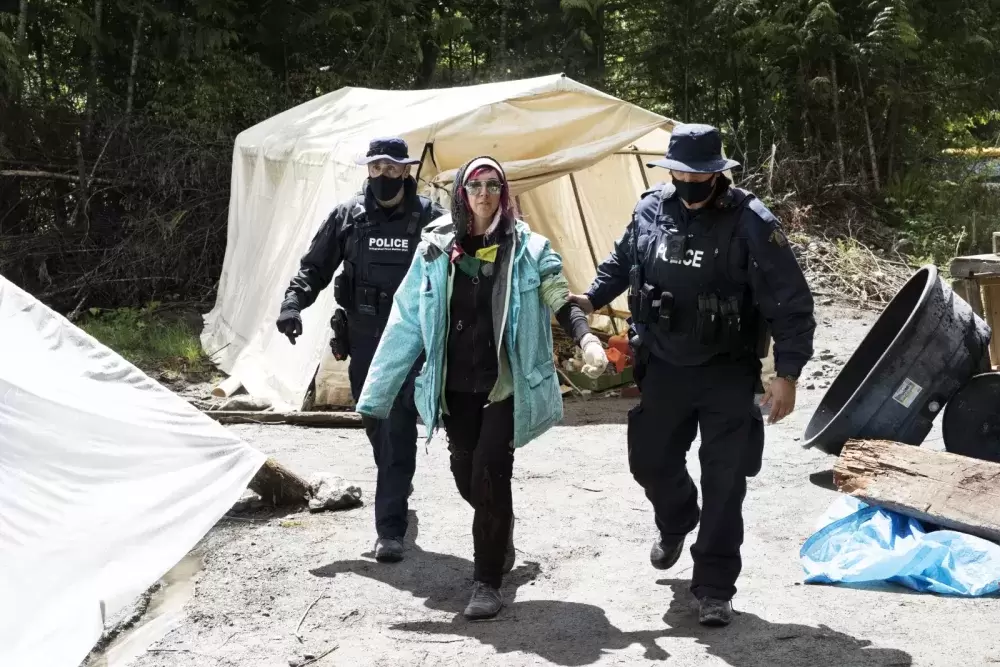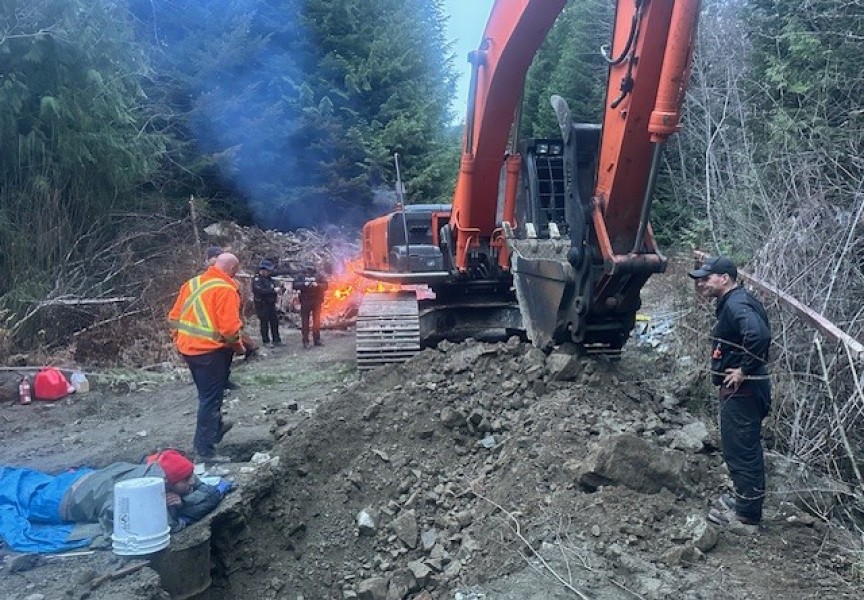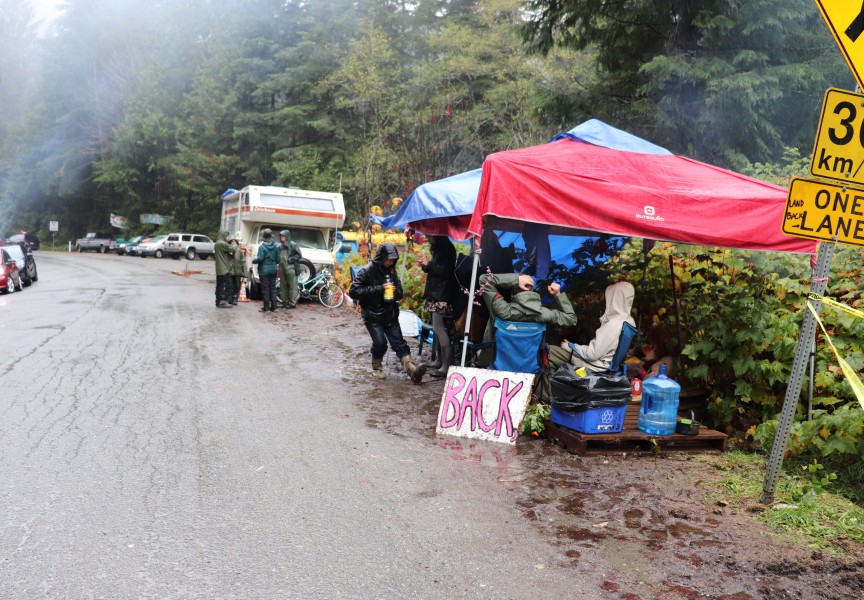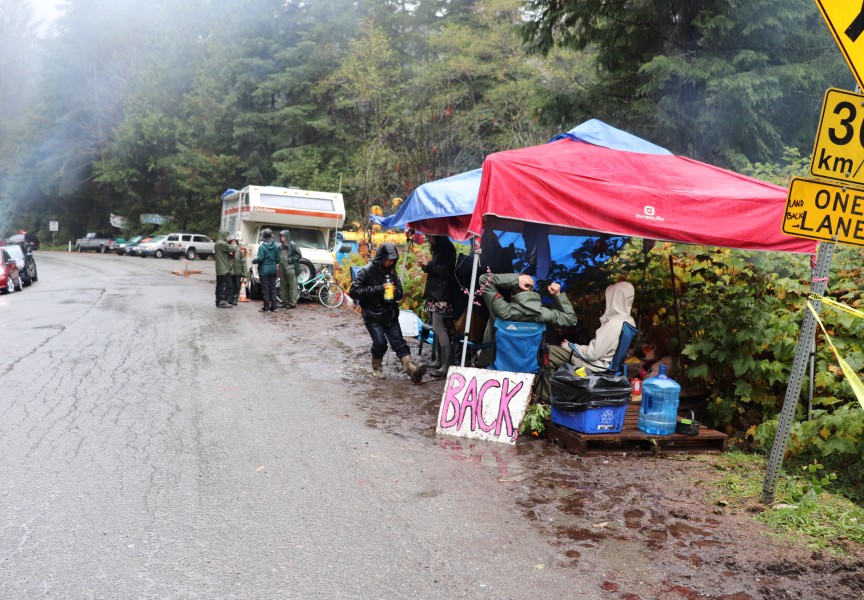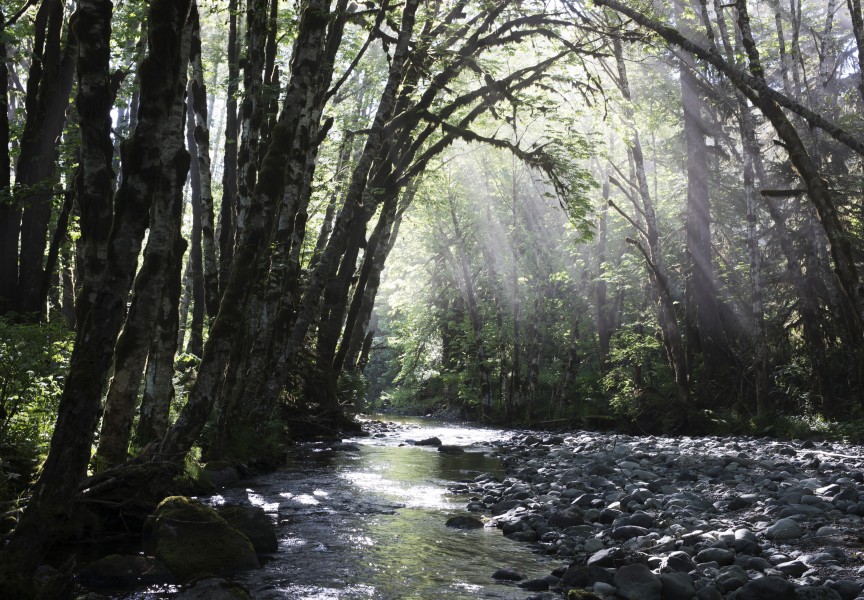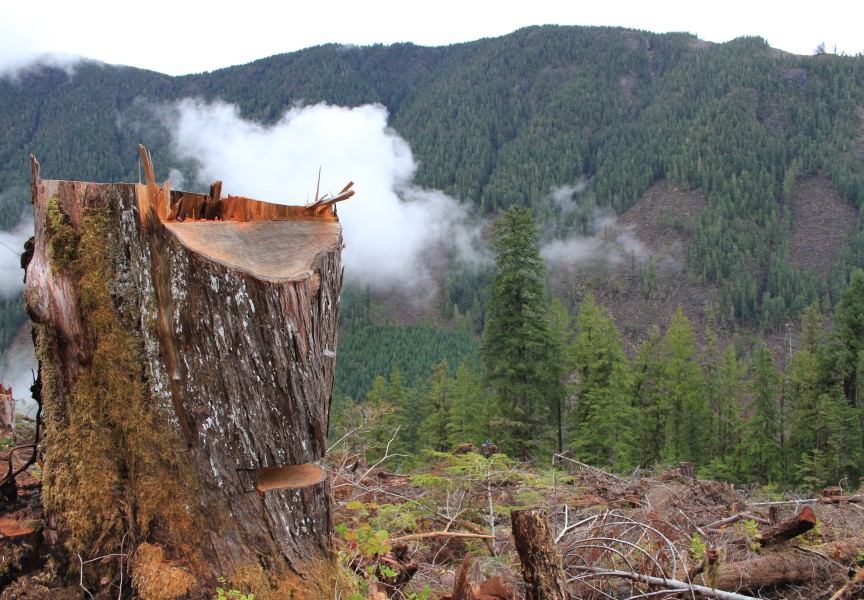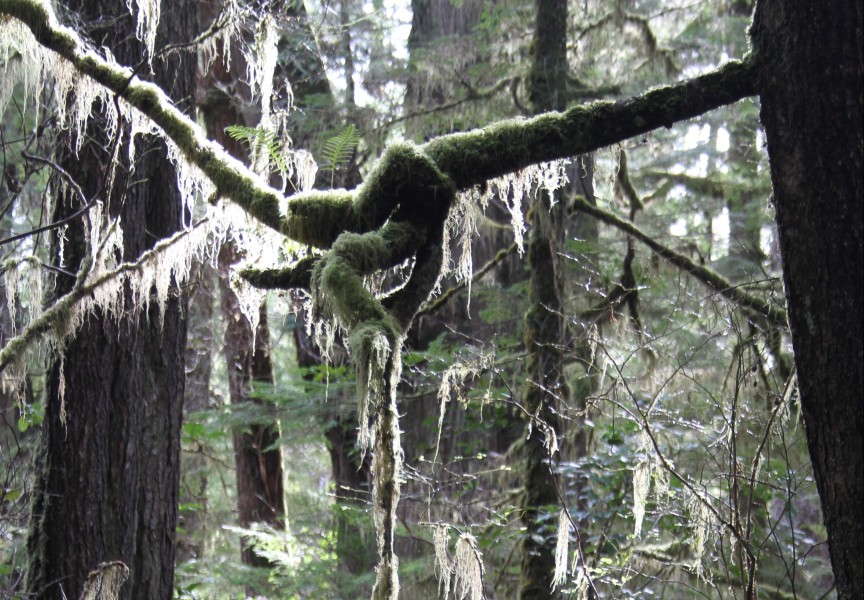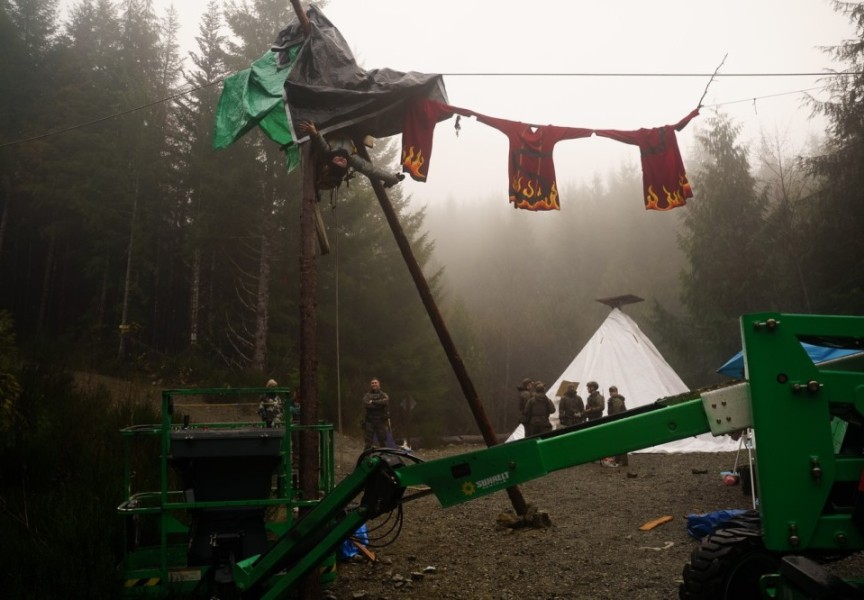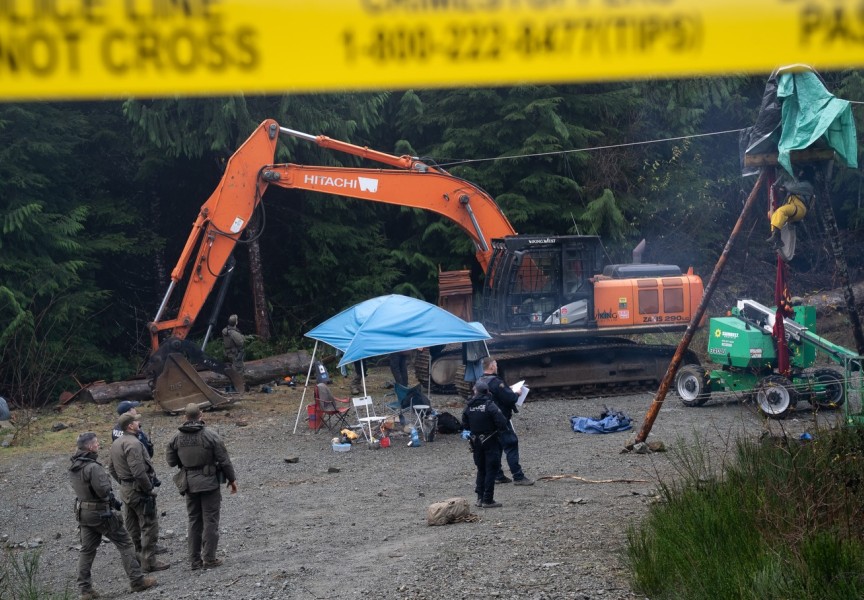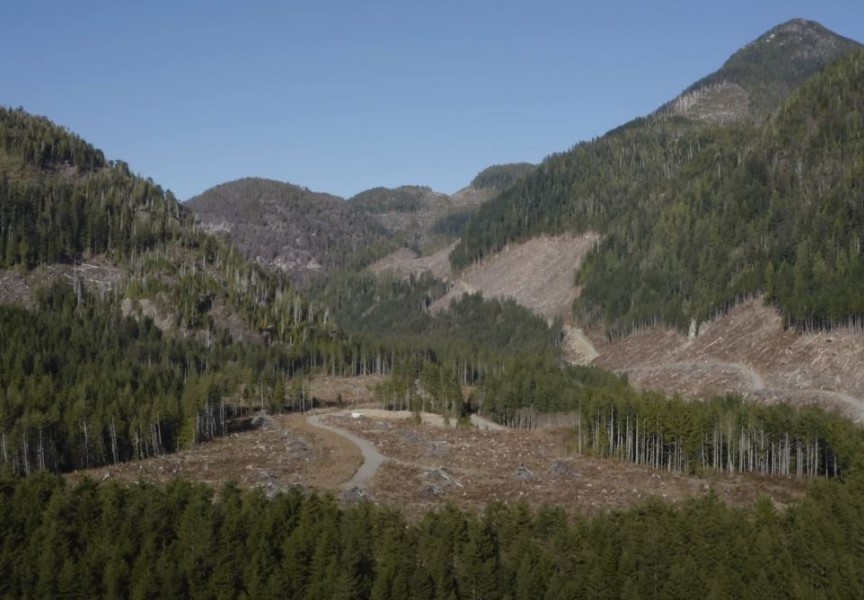Due to the record-breaking temperatures sweeping British Columbia, the Pacheedaht First Nation have issued a statement calling for protestors to vacate the Fairy Creek area with the increased risk of wildfires.
“To prevent the possibility of human caused wildfires that could threaten the Pacheedaht First Nation community, businesses and natural resources, including old-growth forests in the Fairy Creek area, and with the safety of the protestors in mind, the Pacheedaht is requesting that all protestors immediately cease fire activity, such as campfires, and vacate their traditional territory,” read the statement.
According to Environment Canada, at least 54 daily heat records were broken in British Columbia on Saturday, June 26. Amid the heatwave, there has been a growing concern about the threat of wildfires. In the last seven days, 26 new fires were reported by the B.C. Wildfire Service.
The request is being made in consideration of the nation’s constitutional right to decide what is best for its lands, waters, and resources, read the statement.
On June 7, the Pacheedaht, Ditidaht and Huu-ay-aht First Nations signed the Hišuk ma c̕awak Declaration, which called for a two-year deferral of old-growth logging in the Central Walbran and Fairy Creek regions as they prepare resource management plans.
“The three nations declared that in accordance with our traditional laws and our constitutionally protected Aboriginal rights and title and treaty rights, our governance and stewardship responsibilities in our ḥahahuułi (traditional territories) must be acknowledged and respected,” said Pacheedaht First Nation elected chief Jeff Jones, in a statement.
The request was approved by the B.C. government on June 9, however the Rainforest Flying Squad, an old-growth activist group, said the logging deferral has “changed little.”
Since August, the flying squad has been stationed at various blockades throughout the Caycuse and Fairy Creek watersheds to prevent Teal-Jones from accessing what they consider the last remaining old-growth forests untouched by industrial logging.
“While a temporary reprieve is in place for the Fairy Creek watershed itself, huge trees are still being cut down every day in the connected, surrounding forests on Pacheedaht ancestral territory,” the flying squad said in a release on June 21.
Since the deferral was announced, over 35 hectares have been logged in the Caycuse alone, according to the Rainforest Flying Squad.
Under the guidance of Pacheedaht elder Bill Jones, Kathleen Code, a spokesperson for the Rainforest Flying Squad, said they will stand their ground as long as the old-growth forests are vulnerable to logging.
Recognizing that it is fire season, Code said the Rainforest Flying Squad is currently drafting a wildfire protocol, which includes a ban on campfires, smoking, use of tools that can produce a spark, along with no backing of vehicles into long grass.
“We are there to protect the old-growth,” she said. “We still perceive that there is a danger that those trees could be logged the moment we are not there to protect them. We are taking every precaution to make sure that we are protecting both the forest and our people.”
Meanwhile, the Pacheedaht First Nation said it is committed to undertaking a formal integrated planning process to determine how best to manage the resources in their traditional territory.
“With old-growth logging in the Fairy Creek watershed now deferred for two years, an integrated resource management planning process underway and with the increased risk of forest fires due to high temperatures, there is no reason for the protestors to continue to occupy our traditional territory,” said Chief Jeff Jones. “We respectfully reiterate our request for protestors to leave our traditional territory and let our nation get on with the business of deciding how best to manage our ḥahahuułi.”

